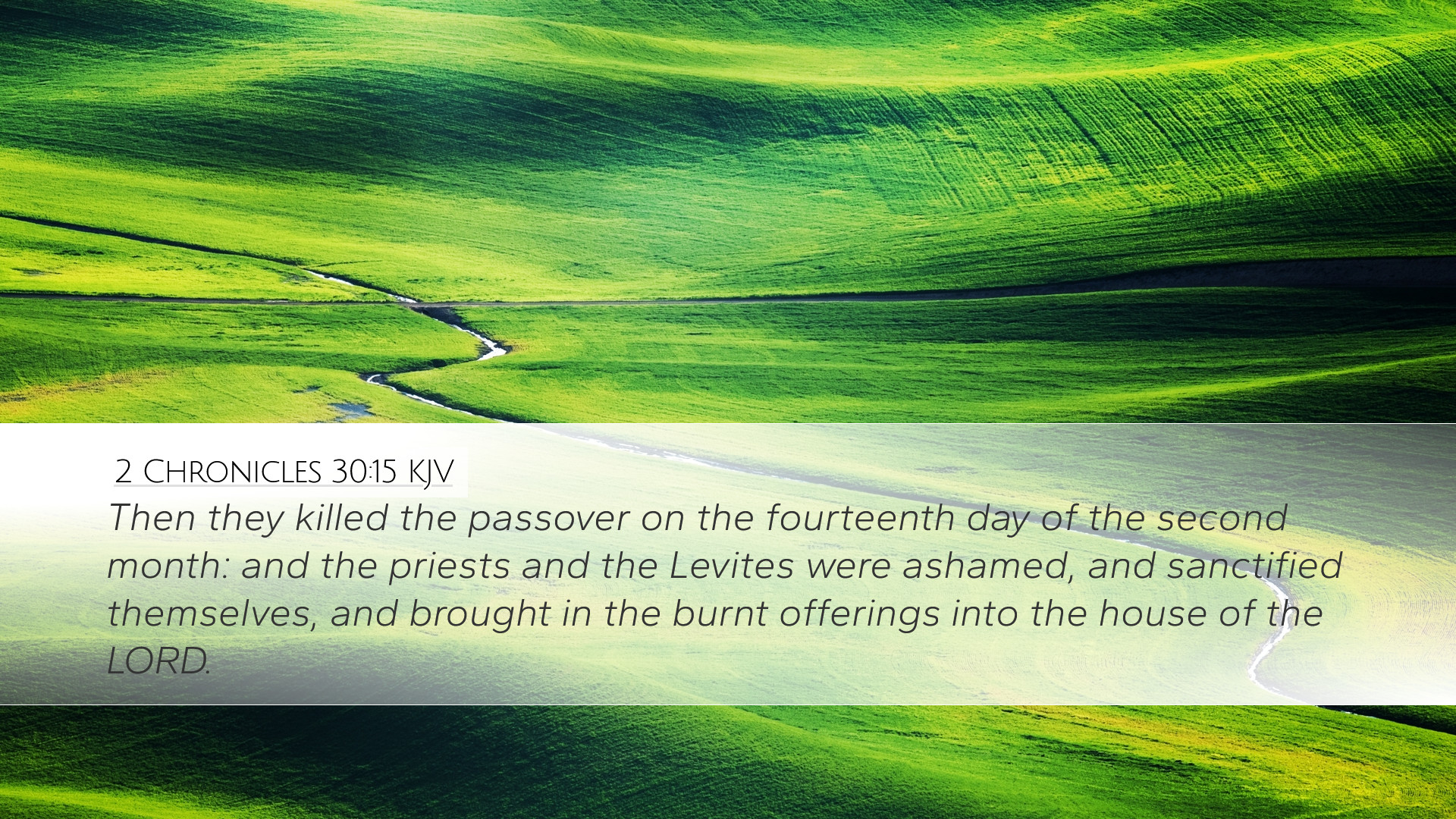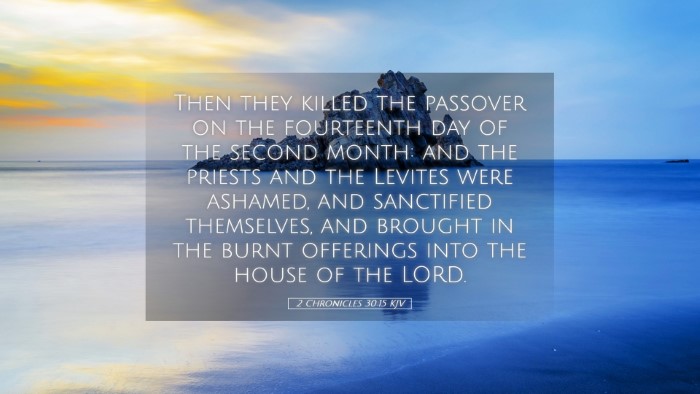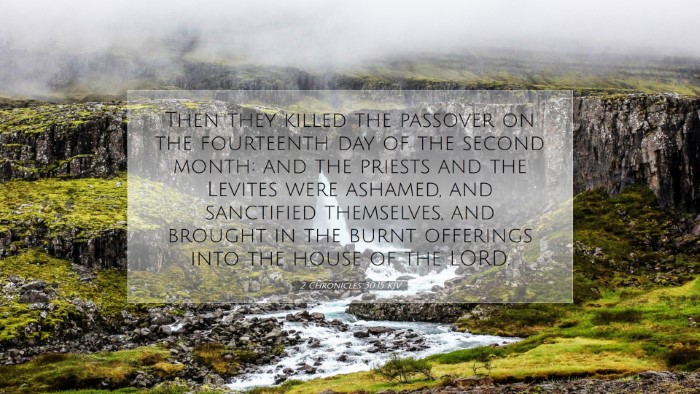2 Chronicles 30:15 Commentary
Bible Verse: "Then they killed the passover on the fourteenth day of the second month: and the priests and the Levites were ashamed, and sanctified themselves, and brought in the burnt offerings into the house of the LORD."
Contextual Background
This passage situates itself within the historic revival initiated by King Hezekiah following years of unfaithfulness in Israel. The observance of the Passover is a pivotal event as it marks the remembrance of God's deliverance of Israel from Egypt.
Hezekiah’s desire was not just to celebrate a festival; rather, he sought to reestablish a covenant relationship between the people and God, which had been neglected. The choosing of the second month instead of the designated first month due to the people's impurity reflects the mercy and flexibility of God in light of human conditions.
Insights from Matthew Henry
According to Matthew Henry, this verse portrays a scenario where the priests and Levites were deeply moved. Their shame signifies recognition of their neglect of sacred duties, representing a significant moment of repentance and restoration within the priestly order.
- Shame and Consecration: Henry notes that the shame of the priests was a catalyst for sanctification. Acknowledgment of past failures leads to a commitment to holiness.
- Collective Worship: The gathering for Passover serves as a unifying event, reflecting a communal return to God. The emphasis on collective responsibility is paramount for true revival.
Insights from Albert Barnes
Albert Barnes emphasizes the significance of the timing of the Passover. By observing it in the second month, there is a demonstration of God’s grace. It underscores the theme that God desires relationship over rigid adherence to law when circumstances inhibit compliance.
- God’s Provision: Barnes discusses how this flexibility showcases God’s desire to accept worship even from those who have fallen short. The sacrifices brought forth signify an intention to return to God amidst previous failings.
- Leadership Influence: The role of Hezekiah as a reformer is highlighted by Barnes, asserting that godly leadership inspires the people to renew their commitments to God.
Insights from Adam Clarke
Adam Clarke brings to light the meticulous details surrounding the execution of the Passover sacrifices. He emphasizes the meticulous nature of worship, stressing the importance of correct practice led by the Levites, and serves as a reminder of the holiness required in worship.
- Role of the Levites: Clarke portrays the Levites as crucial mediators whose active participation brought restoration and divine acknowledgment to the sacrificial system.
- Progressive Revelation: Clarke also hints at the progressive nature of revelation, suggesting that God allowed for a permissible celebration of the Passover even when it strayed from the conventional norm, signaling a movement towards deeper truths.
Theological Implications
This passage illustrates vital themes such as the nature of repentance, the importance of community in worship, and the adaptability of God's covenant with His people. The interplay of divine grace and human response calls for reflection on modern practices of worship and community engagement.
- Repentance and Renewal: The transition from shame to sanctification illustrates that repentance is not merely an emotional state but a catalyst for action and renewed purpose.
- Covenant Faithfulness: The ability to celebrate Passover in a manner pleasing to God even amidst past failures underscores the importance of God’s faithfulness irrespective of human shortcomings.
Practical Applications for Today
As pastors, students, theologians, and scholars engage with this text, several practical applications can be drawn to enhance understanding and practice in the contemporary church:
- Encouraging Repentance: Leaders should create environments that prompt confession and transformation within congregations, just as Hezekiah did. This encourages a culture of accountability and mutual growth.
- Celebration of Community: The choice to gather for worship reflects the necessity of community in faith. Modern churches can learn from this commitment to collective worship as a source of strength and renewal.
- Flexibility in Practice: The adaptability seen in Hezekiah’s time invites contemporary believers to understand the heart of worship, ensuring it remains life-giving rather than merely ritualistic.
Conclusion
In summary, 2 Chronicles 30:15 encapsulates a profound moment of spiritual revival and communal worship, resonating with insights from notable biblical scholars. It urges believers to reflect on themes of grace, repentance, and the importance of community—a timeless message applicable to today's church.


